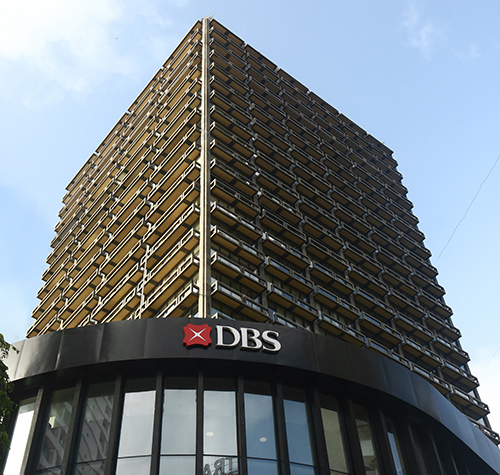One of the first banks in India to announce a blanket waiver across the full MSME spectrum; move aims to boost cash‑flow agility, refinance freedom and growth investments for entrepreneurs.
Chandigarh: In a move positioned as a structural boost for small business financing, DBS Bank India Limited (DBIL) has waived all prepayment and foreclosure charges on term loans and other eligible credit facilities availed by UDYAM‑registered Micro, Small and Medium Enterprises (MSMEs). Effective immediately (prospective basis), the waiver applies to both new sanctions and existing active borrowers, eliminating a cost friction that has traditionally discouraged early repayment, refinancing or capital re‑allocation.

What the Waiver Means
Prepayment and foreclosure levies often act as “exit penalties”—raising the effective cost of credit when a borrower seeks to repay ahead of schedule or refinance at better terms. By removing these penalties, DBS Bank India is offering MSMEs the latitude to:
-
Retire higher‑cost debt earlier.
-
Switch to more appropriate tenors or structures without lock‑in anxiety.
-
Free up working capital for inventory build‑up, technology upgrades, market expansion or seasonal procurement cycles.
-
Improve interest coverage ratios over time by opportunistically lowering finance costs.
Strategic Rationale
Announced on MSME Day, the initiative underscores the bank’s framing of MSMEs as a “resilience and growth engine” for the wider economy. It also signals alignment with the policy emphasis on greater transparency, borrower empowerment and credit inclusion. While many lenders selectively waive or negotiate charges case‑by‑case, DBS Bank India is positioning this as a blanket policy—differentiating itself on simplicity and predictability.
Leadership Commentary
Sudarshan Chari, Managing Director & Head – SME Banking, stated that flexible, affordable credit is “critical” and highlighted how the waiver removes a ‘common challenge’ limiting financial agility. According to him, enabling penalty‑free early repayment should allow entrepreneurs to reallocate liquidity toward fast‑moving priorities—“inventory, technology, and expansion”—thus accelerating productive deployment of capital rather than trapping it in interest outflows.
Broader SME Banking Proposition
DBS Bank India emphasises that the waiver is not a standalone gesture but part of an integrated SME enablement stack, which includes:
| Pillar | Key Offering / Capability | Intended MSME Benefit |
|---|---|---|
| Digital Onboarding | Online current account opening | Faster go‑live; reduced paperwork |
| Credit Access | Hassle‑free business loans | Quicker working capital mobilisation |
| FX & Treasury | Award‑winning foreign exchange solutions | Hedge efficiency; margin protection |
| API-Led Integration | Banking APIs for ERP/workflow linkage | Automation; reduced manual reconciliation |
| Cash & Liquidity | DBS IDEAL mobile-enabled corporate platform | Real‑time payments, cash visibility |
| Accounting Connectivity | Tally ERP integration | Automatic reconciliation; better controls |
Technology & Operational Efficiency
Through its API-led banking and DBS IDEAL platform, the bank aims to shift MSMEs from manual, batch-based finance operations to real-time cash visibility and automated transaction lifecycles. The Tally ERP integration further diminishes reconciliation delays—reducing errors, improving audit readiness, and strengthening decision latency (speed of actionable insight). This digital fabric is pitched as essential for scaling businesses that are often resource constrained.
Addressing a Persistent Pain Point
For many MSMEs, foreclosure charges can distort the cost–benefit analysis of refinancing even when interest rates decline or when internal cash generation supports accelerated debt reduction. By removing the penalty, the “mathematics of deleveraging” shifts: every rupee of early principal repayment immediately cuts future interest expense without an offsetting fee, improving internal rate of return (IRR) on retained earnings deployed toward debt extinguishment.
Competitive & Ecosystem Significance
-
Signal Effect: The blanket nature of the waiver may pressure other lenders to reassess fee structures for small business borrowers.
-
Liquidity Optimization: MSMEs with seasonal cycles (e.g., trading, light manufacturing, agri‑linked processing) gain optionality to manage short, sharp cash inflows more productively.
-
Credit Discipline: Free exit can incentivize firms to actively benchmark borrowing costs, fostering a market where pricing competitiveness and service quality outweigh contractual frictions.
Risk & Governance Framing
DBS Bank India’s articulation suggests confidence in its underwriting models, monitoring analytics and portfolio diversification to accommodate earlier repayments without destabilizing interest income trajectories. The bank’s broader value chain support narrative implies continued investment in data, risk scoring, and digital engagement to maintain asset quality while expanding reach.
Focus on End-to-End Empowerment
The waiver complements advisory and digital tools—creating a proposition that migrates SMEs from being “rate-sensitive borrowers” to “strategic financial managers.” By embedding real-time data flows (payments, FX, accounting), the bank supports forward cash forecasting, enabling clients to time prepayments at optimal working capital inflection points.
Forward Outlook
DBS Bank India indicates it will continue rolling out need-based, high-utility products and operational enablers, prioritising frictionless experience over product proliferation. The success of this initiative will likely be measured by:
-
Uptake rate of early repayments/restructurings.
-
Growth in digitally-originated SME relationships.
-
Portfolio churn dynamics versus net disbursement growth.
-
Improvement in client retention and cross-sell ratios.
Hashtags:
#DBSBankIndia #MSMEs #SMEBanking #UDYAM #FinancialInclusion #WorkingCapital #BusinessLoans #CashFlow #SMEGrowth #NoPrepaymentPenalty #DBSIDEAL #DigitalBanking #TallyIntegration #SMEFinance #ForeclosureWaiver

